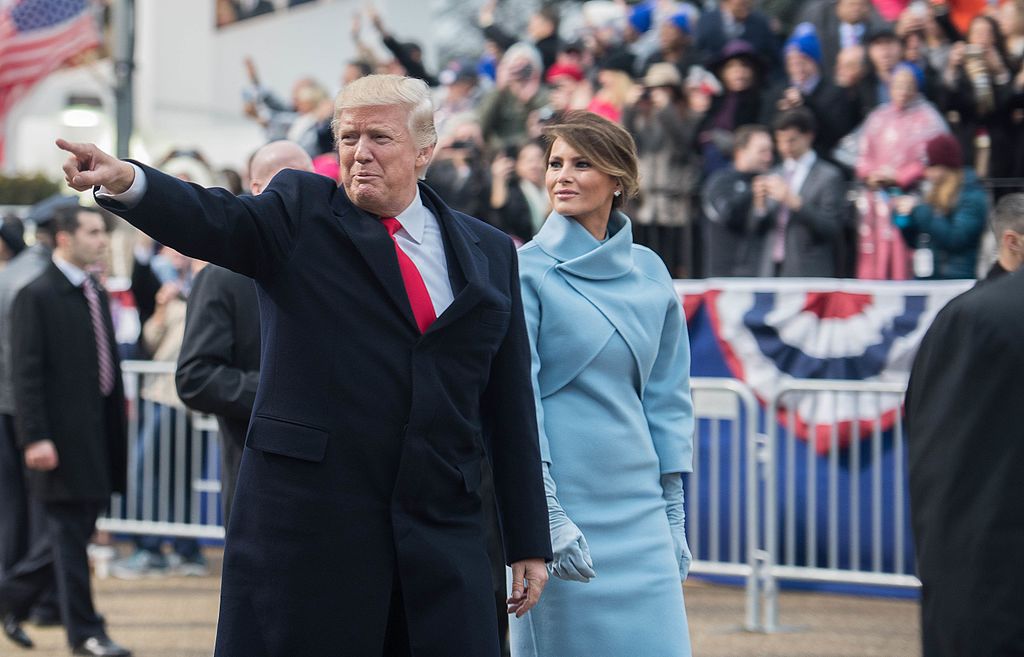Former President Donald Trump has unveiled a detailed strategy to boost college graduation rates across the United States in 2025. His ambitious plan targets key areas such as financial aid reform, enhanced student retention programs, and partnerships with private industries to equip graduates with career-ready skills.
Speaking at a policy summit, Trump emphasized the need for America to regain its global standing in higher education. He underscored that his administration would focus on reducing student loan burdens, streamlining pathways for degree completion, and bridging gaps between academia and employment. “It’s time for American students to graduate on time and with purpose,” he declared.
Expanding Access to Financial Aid
Central to Trump’s strategy is a significant overhaul of the federal financial aid system. His administration proposes expanding Pell Grant eligibility to cover more middle-income families, while also capping student loan interest rates. This move, according to Trump, would ease financial pressures that often derail students before graduation.
In addition to financial aid, Trump aims to introduce performance-based scholarships. These incentives would reward students who maintain a high GPA or complete internships aligned with their field of study. Experts argue that such measures could motivate students to stay the course and graduate on time.
However, critics remain skeptical. They point out that while the initiatives sound promising, they require substantial federal funding and meticulous implementation to be effective.
Strengthening Retention Through Innovative Programs
Another cornerstone of Trump’s plan involves improving student retention. His administration plans to partner with colleges to develop mentorship programs and early-warning systems for at-risk students. The strategy also includes expanding on-campus mental health services and career counseling to address non-academic barriers to graduation.
Trump’s vision extends beyond just degree completion. He proposes forging stronger connections between academia and the workforce by encouraging universities to integrate industry-specific training into their curricula. By doing so, he aims to ensure graduates are not only well-educated but also job-ready.
Despite the potential benefits, some educators express concerns about over-emphasizing vocational skills at the expense of a broader educational experience. “Balancing employability and intellectual growth is crucial,” noted one higher education policy expert.
Online Buzz: Mixed Reactions to Trump’s Plan
Social media platforms have been abuzz with opinions on Trump’s college graduation initiatives:
- @EdReformer: “Finally, someone addressing student debt AND graduation rates! This could be a game-changer for young Americans.”
- @SkepticScholar: “Performance-based scholarships sound great, but where’s the funding coming from? Hope this isn’t another empty promise.”
- @GradGoals2025: “Improving retention with mentorships is genius. Many students drop out because they feel unsupported. Kudos to Trump!”
- @PolicyWatcher: “Focus on employability is critical, but let’s not forget the value of well-rounded education!”
- @DebtFreeDreamer: “Capping loan interest rates is a step in the right direction. Long overdue, if you ask me.”
- @CriticalEducator: “Trump’s plans are ambitious but lack clarity. What’s the execution timeline?”



 Rubio Says U.S. Would Not Target School After Deadly Iran Strike Reports
Rubio Says U.S. Would Not Target School After Deadly Iran Strike Reports  Israel Launches Fresh Strikes on Iran After Death of Supreme Leader Ayatollah Khamenei
Israel Launches Fresh Strikes on Iran After Death of Supreme Leader Ayatollah Khamenei  Trump Launches Operation Epic Fury: U.S. Strikes on Iran Mark High-Risk Shift in Middle East
Trump Launches Operation Epic Fury: U.S. Strikes on Iran Mark High-Risk Shift in Middle East  U.S.-Israel Strike on Iran Escalates Middle East Conflict, Trump Claims Khamenei Killed
U.S.-Israel Strike on Iran Escalates Middle East Conflict, Trump Claims Khamenei Killed  Does international law still matter? The strike on the girls’ school in Iran shows why we need it
Does international law still matter? The strike on the girls’ school in Iran shows why we need it  Melania Trump Chairs Historic U.N. Security Council Meeting on Children Amid Iran Conflict
Melania Trump Chairs Historic U.N. Security Council Meeting on Children Amid Iran Conflict  Trump Says U.S. Attacks on Iran Will Continue, Warns of More American Casualties
Trump Says U.S. Attacks on Iran Will Continue, Warns of More American Casualties  Trump Announces U.S. Strikes on Iran Navy as Conflict Escalates
Trump Announces U.S. Strikes on Iran Navy as Conflict Escalates  EU Urges Maximum Restraint in Iran Conflict Amid Fears of Regional Escalation and Oil Supply Disruption
EU Urges Maximum Restraint in Iran Conflict Amid Fears of Regional Escalation and Oil Supply Disruption  Australia Rules Out Military Involvement in Iran Conflict as Middle East Tensions Escalate
Australia Rules Out Military Involvement in Iran Conflict as Middle East Tensions Escalate  U.S. Deploys Tomahawks, B-2 Bombers, F-35 Jets and AI Tools in Operation Epic Fury Against Iran
U.S. Deploys Tomahawks, B-2 Bombers, F-35 Jets and AI Tools in Operation Epic Fury Against Iran  U.S.-Israel War on Iran Escalates as Gulf Conflict Disrupts Oil, Air Travel and Regional Security
U.S.-Israel War on Iran Escalates as Gulf Conflict Disrupts Oil, Air Travel and Regional Security  AI is already creeping into election campaigns. NZ’s rules aren’t ready
AI is already creeping into election campaigns. NZ’s rules aren’t ready  Middle East Conflict Escalates After Khamenei’s Death as U.S., Israel and Iran Exchange Strikes
Middle East Conflict Escalates After Khamenei’s Death as U.S., Israel and Iran Exchange Strikes  U.S. Lawmakers Question Trump’s Iran Strategy After Joint U.S.-Israeli Strikes
U.S. Lawmakers Question Trump’s Iran Strategy After Joint U.S.-Israeli Strikes  Russia Signals Openness to U.S. Security Guarantees for Ukraine at Geneva Peace Talks
Russia Signals Openness to U.S. Security Guarantees for Ukraine at Geneva Peace Talks  UK Accepts U.S. Request to Use British Bases for Defensive Strikes on Iranian Missiles
UK Accepts U.S. Request to Use British Bases for Defensive Strikes on Iranian Missiles 
































